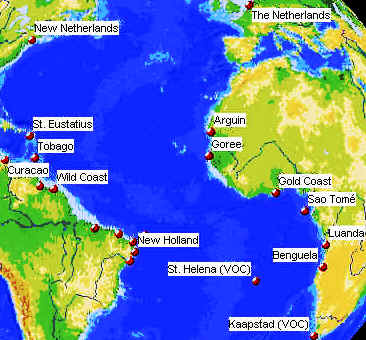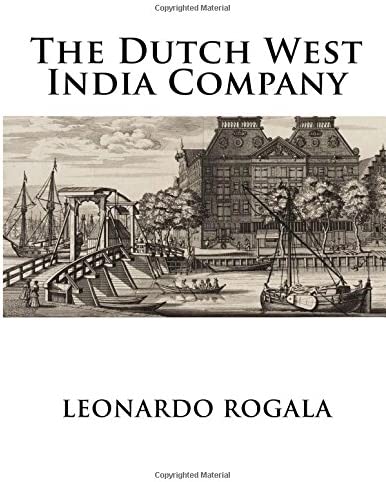Netherlands Prime Minister Apologizes for Atlantic Slave Trade. Dispels the Payment of Reparations
Africans say this is not enough calling for reparations

All Global Research articles can be read in 51 languages by activating the Translate Website button below the author’s name.
To receive Global Research’s Daily Newsletter (selected articles), click here.
Follow us on Instagram and Twitter and subscribe to our Telegram Channel. Feel free to repost and share widely Global Research articles.
***
Over the last few decades the demand to pay reparations for African enslavement has drawn support from around the world.
Africans on the continent along with those living in other parts of the globe have joined the movement for reparations as compensation from Europe and North America for the centuries-long Atlantic slave trade.
The initial move in any reparations process would be a formal apology from the nations, governments and corporations involved. Many nations within Western Europe and later the United States and Canada profited immensely from the enslavement of African people.
In fact, scholars such as W.E.B. Du Bois, Eric Williams, Walter Rodney, Vincent B. Thompson and many others have made the argument that without the exploitation and oppression of African people, the feudal and capitalist economies of Western Europe and North America would have never gained dominance within the world economic system after the 15th century. Such an historical fact means that the current international bourgeoisie owes its global status to the labor power, waterways and natural resources of the African continent and would therefore be liable for incalculable amounts of monetary damages extending back nearly six centuries.
As a result of the institutional racism which grew out of the slave and colonial systems, Africans and their descendants still suffer today from national oppression, discrimination based on color and economic exploitation which has its origins in the antebellum period and the rise of imperialism. In the U.S., segregation was legal up until the mid-1960s when the Civil Act of 1964 was passed by both chambers of the Congress. The following year, the Voting Rights Act of 1965 was signed into law even though well into the 21st century, the right to universal suffrage remains a source of struggle.
Netherlands Prime Minister Mark Rutte on December 19 delivered an address at the national archives where he expressed his deep regret that Dutch history had been marred by involvement in the Atlantic slave trade. This speech grew out of a commission which was established in 2020 amid the worldwide demonstration against racism prompted by the police execution of George Floyd in Minneapolis.
The role of the Netherlands commission was to examine the colonial history of the country which profited from the enslavement of African people in several territories in North America, South America and the Caribbean. In 2021, the commission concluded that the Netherlands needed to accept its responsibility for what was described as a “crime against humanity.”
In the 20 minutes speech, Rutte apologized for:
“[T]he actions of the Dutch state in the past: posthumously to all enslaved people worldwide who have suffered from those actions, to their daughters and sons, and to all their descendants into the here and now. For centuries the Dutch state and its representatives have enabled and stimulated slavery and have profited from it. It is true that nobody alive today bears any personal guilt for slavery…(however) the Dutch state bears responsibility for the immense suffering that has been done to those that were enslaved and their descendants.”
Yet those African descendants who were present at the speech were not impressed with the Rutte apology. During the address the prime minister ruled out the payment of reparations. Instead, he announced that his government would be establishing a fund of $US212 million to tackle some of the problems stemming from past injustices.
Africans whose ancestors were enslaved by the Dutch accused Rutte of being disingenuous in his statements. Residents of existing and former colonies of the European country say they had not been consulted prior to the speech. Others claimed that the timing of the apology was ill-timed since the 160th anniversary of the abolition of enslavement in the Dutch colonies will be commemorated during 2023.
Dutch retiree Waldo Koendjbiharie said of the speech by the Dutch leader that:
“It’s about money. Apologies are words and with those words you can’t buy anything.”
Another African descendant from the South American state of Surinam, which was colonized by the Netherlands, Roy Kaikusi Groenberg of the Honor and Recovery Foundation, emphasized:
“It takes two to tango — apologies have to be received. The way the government is handling this, it’s coming across as a neo-colonial belch.”
The Dutch Role in Slavery and Colonialism
This area of Europe would emerge as a critical player in the Atlantic slave trade and colonization in the Western Hemisphere, Africa and Asia during the early 17th century. The Dutch fought a war of independence against the Spanish crown during the late 16th and early 17th centuries.
Several rival European states were seeking to dominate the trade in human beings and commodities during the 16th and 17th centuries. The Dutch fought both Spain and Portugal to claims its own place within the burgeoning Atlantic slave trade and the colonization of the Western Hemisphere and the Asia-Pacific.
The Dutch West India Company and its counterpart known as the East India Company established numerous stations around the world. The company fought several wars with states in addition to Spain and Portugal.
Between the early 17th century to the concluding years of the 18th century, competition was fierce between France, England and the Dutch. Eventually, the Dutch would be overwhelmed by the military and commercial successes of other Western European powers such as France and Britain.
One source says of the impact of Dutch colonization that:
“Dutch West India Company, byname of West India Company, Dutch West-Indische Compagnie, Dutch trading company, was founded in 1621 mainly to carry on economic warfare against Spain and Portugal by striking at their colonies in the West Indies and South America and on the west coast of Africa. While attaining its greatest success against the Portuguese in Brazil in the 1630s and ’40s, the company depleted its resources and thereafter declined in power. It was dissolved in 1794. The company also established several colonies in the West Indies and Guyana between 1634 and 1648, including Aruba, Curaçao, and Saint Martin, but later lost many of them to the French. The Dutch colony in North America, New Netherland (renamed New York in the mid-1660s), became a province of the company in 1623. A combination of low Dutch immigration, autocratic administration, and under-investment, however, damaged the ability of New Netherland to compete with the neighboring English colonies, and it was ceded to the English in 1667. The Dutch West India Company was much less successful than the Dutch East India Company, its counterpart in Southeast Asia. The West India Company was taken over by the state in 1791 and was dissolved in the wake of the French invasion of the Dutch Republic in 1794.”
Even today in the 21st century, the Kingdom of the Netherlands is composed of the European capital and other island nations in the Caribbean. The Caribbean part of the Kingdom is made up of the islands of Aruba, Curaçao, St Maarten, Bonaire, Saba and St Eustatius.
The Netherlands joined the North Atlantic Treaty Organization (NATO) in 1949. Since this time period, successive governments and the monarchy have been loyal members of the western military alliance.
The Netherlands: A Center of “International Law” for Imperialism
Prior to the advent of World War I and II, The Netherlands attempted to maintain its foreign policy based on neutrality. Nonetheless, the country was occupied by the Nazis in 1940 forcing its leaders to take refuge in England.
In 1945 after the conclusion of WWII, The Netherlands would be a founding member of the United Nations. Later the country benefited from the Marshall Plan along with the aid airlifts in 1953 when over 1800 people died in catastrophic flooding. See this.
During the last two decades, the Netherlands has become a venue for trials over alleged human rights abuses carried out in the former Yugoslavia and the African continent. The International Criminal Court (ICC) has been exclusively pro-occupied with the investigation, extradition and prosecution of African state actors and rebel organizations.
For this reason, the ICC has become a controversial institution as several African governments have criticized the court and threatened to withdraw from the Rome Statute, which created the framework for the ICC in 1998. Efforts were underway for several years to bring the former president of Kenya, Uhuru Kenyatta, and the current President William Ruto, to the Netherlands to stand trial over events which occurred in 2007-2008. Both cases against the two Kenyan leaders were subsequently dropped due to lack of evidence.
The former president of Ivory Coast, Laurent Gbagbo, was kidnapped by French paratroopers in April 2011 and transported to the Netherlands where he remained for nearly a decade awaiting and standing trial over efforts he carried out to prevent the current French and U.S.-backed regime from taking power in this West African state. President Gbagbo was acquitted by the ICC also as a result of a lack of evidence. These are just two examples of the injustices perpetrated by the Netherlands government in alliance with imperialism operating under the guise of international law.
Consequently, until the Netherlands pays reparations for its role in the enslavement and colonization of African and Asian peoples, its apologies under the present administration of Rutte will remain a hollow gesture. Beyond the era of African enslavement to the present, the Kingdom of the Netherlands cannot escape its culpability in the ongoing oppression and exploitation of African and other peoples.
*
Note to readers: Please click the share buttons above or below. Follow us on Instagram and Twitter and subscribe to our Telegram Channel. Feel free to repost and share widely Global Research articles.
Abayomi Azikiwe is the editor of the Pan-African News Wire. He is a regular contributor to Global Research.


